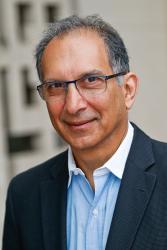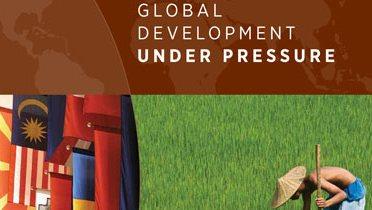A Report from the 2011 Brookings Blum Roundtable on Global Poverty
Over the past decade, many developing countries have experienced unprecedented economic growth that has left them more confident about their development trajectories, more assertive in articulating their needs for external assistance, and more capable of funding development from their own resources. Several of these countries are now simultaneously both recipients and providers of international development aid. But the reverse also holds for those developing countries that remain gripped in fragile and conflict situations, where none of the Millennium Development Goals have been achieved. So far, the international community has failed to provide an adequate solution for how these countries can be brought to stability. Meanwhile, the established club of advanced donor countries—a group directly affected by the ongoing financial and economic crisis—is heavily indebted and subject to strong financial and political pressures to cut budgets and development support.
Private philanthropic and civil society organizations have burst onto the development scene on a much greater scale than just a decade ago. Many international nongovernmental organizations have transformed themselves to mobilize resources for their own programs, giving them more independence from governmentfinanced projects. And multinational corporations are increasingly active in development as they do business, and find profit, in emerging markets. Each of these stakeholders must also contend with the pressures imposed by instant, technology-fueled global communications. Ours is an era of fast-moving change and exchange.
In certain respects, the global development community is awake to these shifting currents, which provide a popular topic for discussion and a motive for reforms. Yet both the pace and implications of change have been underestimated, and reforms to existing cooperation structures and activities are not keeping up. Widening gaps between international agendas and reality demonstrate that global development actors are struggling. The 2005 Paris Declaration on Aid Effectiveness and other grand agreements from the past decade have taken years to negotiate, only to then age quickly in the face of rapidly changing contexts and ideas. As an example, it has taken more than a decade to reach—and operationalize—a global consensus to focus development support on low-income, stable countries. However, this framework is of little relevance in today’s world in which 90 percent of the global poor live in middle-income countries or in fragile states.
The Arab Spring serves as another example of the failure of development cooperation to keep pace with the rapidly changing context in those countries. Government-to-government aid programs have proven ill-equipped to support development when recipient governments themselves are perceived as part of the problem of underdevelopment, rather than as part of the solution. Following political change, there is pressure on global development players to act quickly and responsibly—not least to make up for the shortcomings of their earlier engagement. Yet donors struggle to act without recourse to country-led development strategies that enjoy broad domestic consensus. In many of these countries, which have considerable domestic resources of their own, development cooperation does not revolve around aid, but requires the coherent application of non-aid instruments.
Clearly the process of reforms across the architecture of aid and development support must accelerate. If the relevance interval of global agreements has grown shorter, development actors should improve their ability to anticipate change and translate their ideas more quickly into action. Policy discussions on public-private partnerships, for example, still remain focused on the celebration of project-oriented deals after more than twenty years. What we need, however, is a wholesale shift to a new set of instruments that will enable larger-scale strategic programs.
The good news is that there is massive energy from millions of individuals around the world focused on tackling the challenges of development, which can help extract positive changes out of the present crucible of pressures. A key question is how to best harness that energy and coordinate connections and divisions of labor among the various elements of the modern development ecosystem. We convened the 2011 Brookings Blum Roundtable to address such questions and to discuss the state of global development cooperation, opportunities presented by international platforms for policy dialogue, the lessons of the Arab Spring, U.S. development policy reforms and the challenges of effective communications.
The Brookings Institution is committed to quality, independence, and impact.
We are supported by a diverse array of funders. In line with our values and policies, each Brookings publication represents the sole views of its author(s).





